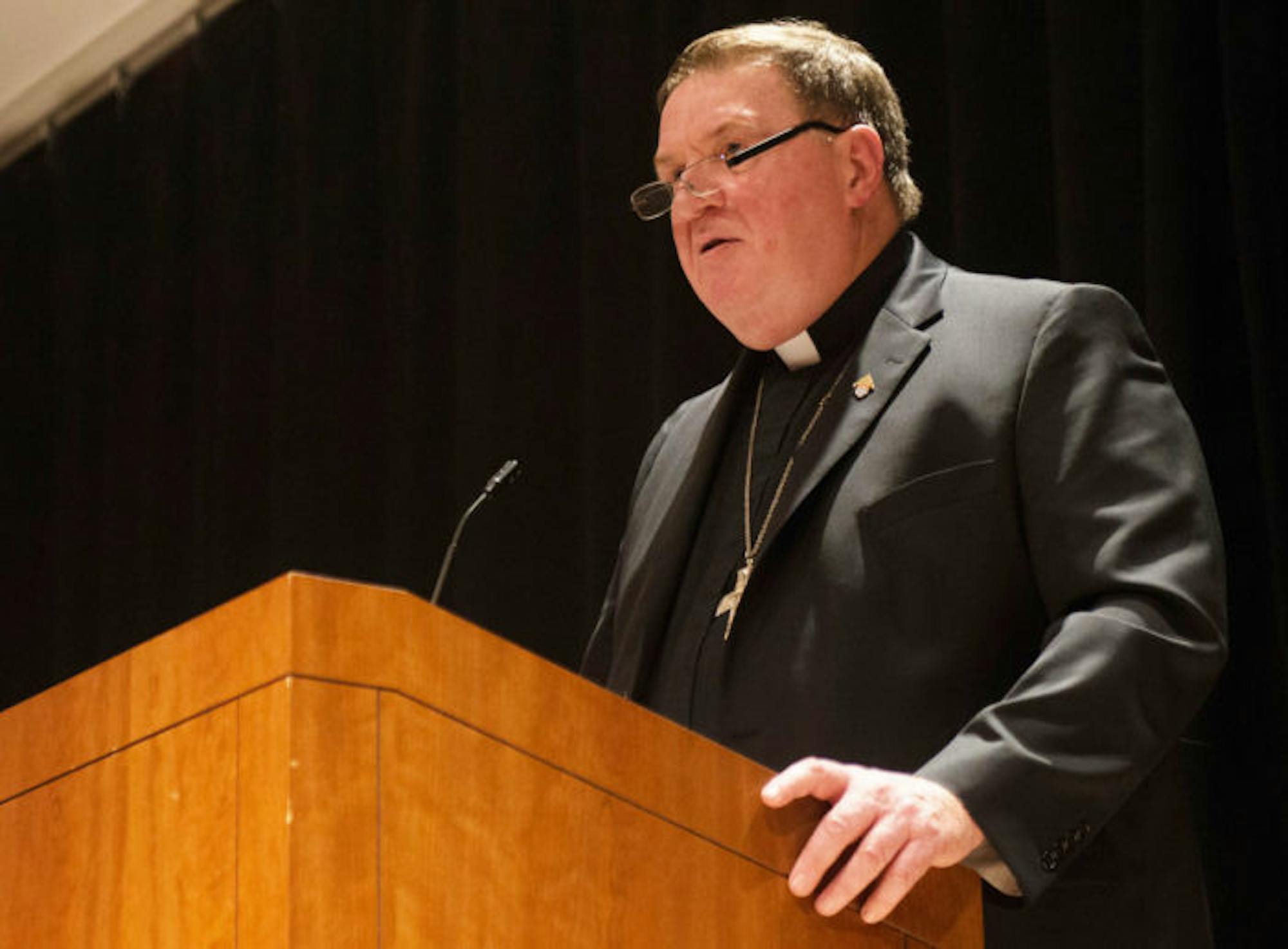Cardinal Joseph Tobin, Archbishop of Newark, N.J., asked listeners to consider the causes and solutions to the hardheartedness affecting many in the Catholic community during a lecture hosted by Notre Dame’s Center for Social Concerns in the Carey Auditorium on Thursday.
Tobin is the second predecessor of former Archbishop of Newark Theodore McCarrick, a former cardinal who left the ministry after an investigation found substantial evidence supporting accusations that he had abused a teenager over four decades ago. As a result of the investigation, Tobin’s name has become entangled in the narrative as the Catholic community and many Americans look to answer questions such as who knew about the abuse and why more serious action was not taken. In light of these questions, Tobin acknowledged the news of the abuse and its impact on the Church.

“In the last month, it seems that our Church has been brought to our knees by the bitter fruits of a toxic culture of clergy sexual abuse and cover up,” he said. “As Catholics we look on aghast, and we ask, ‘How did it ever get to this point?’ ... but that’s not the topic I’m going to talk about tonight.”
Tobin then moved on to the main topic of his lecture — immigration.
“An issue that has stood out to me in particular the last three years or so especially has been the harshness, callousness and cruelty that has come to characterize the attitudes of many, including many Catholics, towards immigrants,” he said.
Instead of using the lecture time to discuss the union we share with immigrants as a “nation of immigrants,” Tobin’s objective was to try to understand the foundation upon which many Americans have become unsympathetic to the suffering of men, women and children who immigrate to the U.S.
Tobin said these hardhearted attitudes say a great deal about the priorities of American people.
“We’ve reached a place where compromise is unthinkable because everything is simply too important. ... People are treating politics and policy agendas as their God — their idol,” Tobin said.
For this reason, Tobin said, very little agreement can be found between either side of the debate on such religiously controversial issues as immigration.
“From a practical standpoint, it’s worth noting that this river is flowing in the wrong direction,” he said. “That is, the teaching and values of our faith should be informing our politics. Not the other way around. Political means are to serve the common good.”
Tobin said Catholics are encouraged not to abandon their political beliefs and parties but to stay and try and advocate for change from the inside.
“When politics become your idol, there are at least three variants on how this can go terribly wrong,” he said. “First, people let their bad politics overtake their faith in terms of what holds the most sway in their conscience. … Secondly, people let their ideas warp the actual proclamations of their faith.”
To this point, Tobin examined the justification of separation of families at the border through the use of scripture. As Satan tempted Jesus in the wilderness by quoting the Bible, he said, many Americans are pulled astray by a similar perversion of scripture.
“The third variant, people discarding faith altogether, leaving the political realm unchallenged,” Tobin said.
Though secularization has allowed a great amount of progress and acceptance to arise in the U.S. toward the LGBTQ community, Tobin said it has also changed people’s attitudes toward immigrants.
“Research shows that Evangelicals who don’t regularly attend church are less hostile to gay people than those who do, but they’re more hostile to African Americans, Latinos and Muslims,” he said, quoting an article from The Atlantic.
Referencing a speech from Pope Francis, Tobin said fear is hardening the hearts of so many Americans to the suffering of the people who immigrate to the U.S. to escape the dangers of their homeland for the safety of themselves and of their families.
According to Jesus’s teachings, Tobin said, it should not be so.
“You see, friends, a Samaritan sees the world differently,” he said. “The ancient man by the roadside is not seen as something potentially dangerous or unclean, but is someone whose sufferings we are called to share.”









